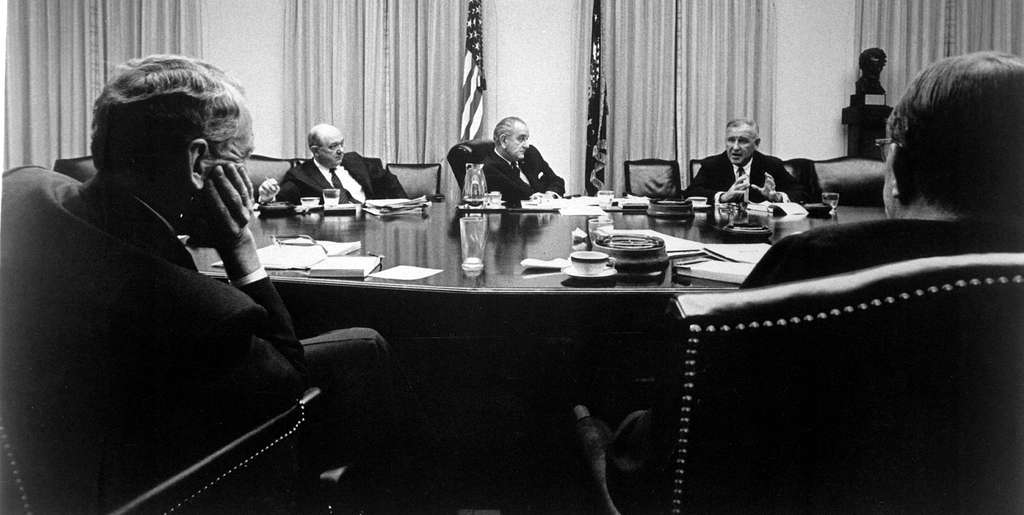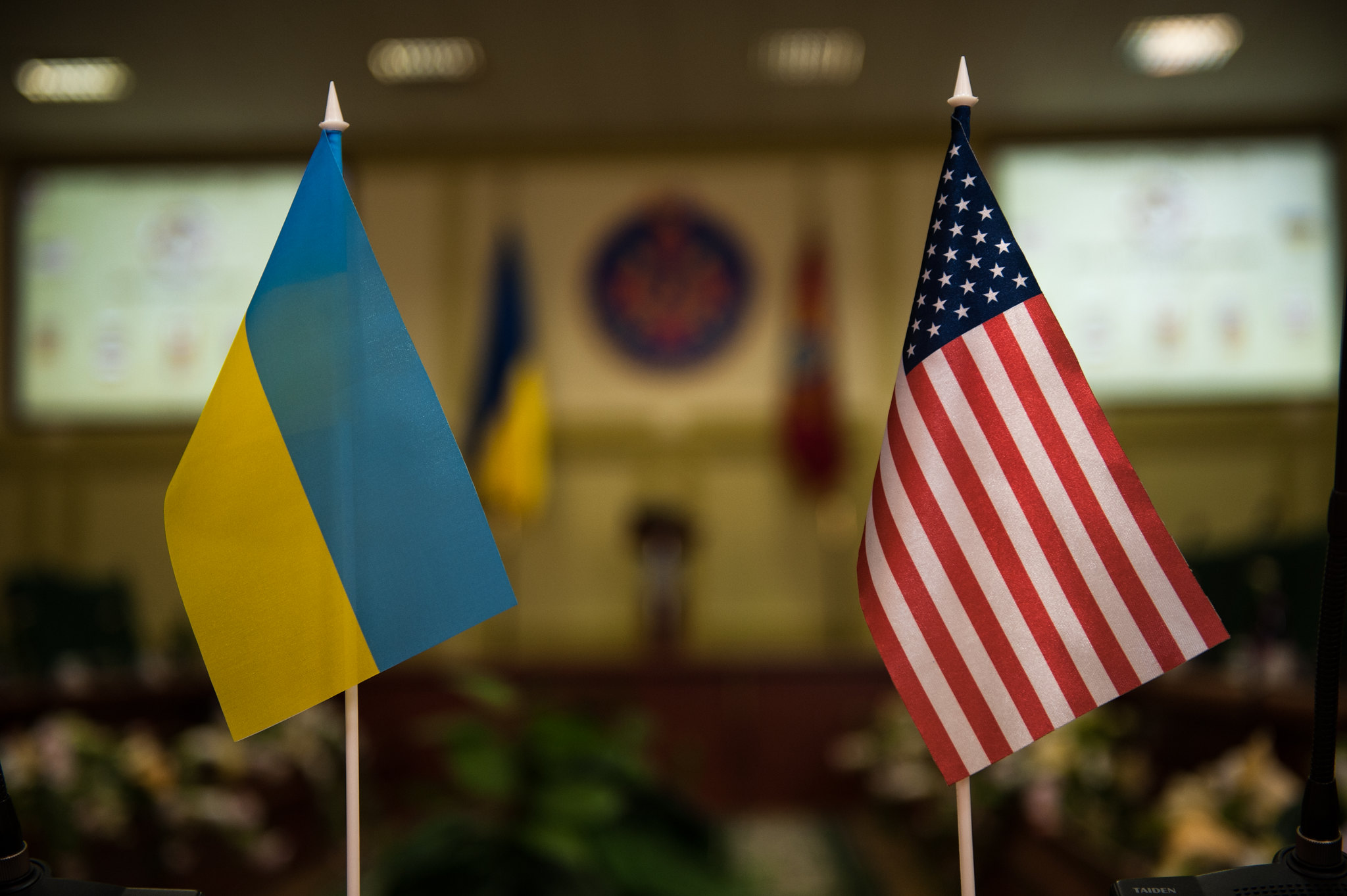What Makes a State Rational?
A review of John Mearsheimer and Sebastian Rosato, “How States Think: The Rationality of Foreign Policy” (Yale University Press, 2023).

A review of John Mearsheimer and Sebastian Rosato, “How States Think: The Rationality of Foreign Policy” (Yale University Press, 2023).
***
Russia’s full-scale invasion of Ukraine in February 2022 thrust into public view the concept of rationality—an idea typically reserved for scholars debating in the ivory tower. Many observers, including former British Prime Minister Boris Johnson and U.S. Sen. Mitt Romney (R-Utah), contended around the time of the invasion that Russian President Vladimir Putin appeared to be thinking irrationally.
But what does “rationality” in international politics mean? That’s the question John Mearsheimer and Sebastian Rosato seek to answer in their new book, “How States Think.” The book has two parts: The authors first define rationality, and then they move into a series of case studies that purportedly show that states are rational—according to their definition—most of the time.
The focus of the book is a worthy one, as defining rationality correctly matters. Most prominent theories of international relations rely on the assumption that states act rationally. Therefore, if many states were shown to be irrational, these theories go out the window. Mearsheimer and Rosato, political scientists at, respectively, the University of Chicago and Notre Dame, claim to save these theories by demonstrating that most states are rational. In addition to the concept’s academic importance, states’ foreign policy strategies must begin with an assessment of the rationality of other states.
But the book largely fails to deliver, both in its theoretical conception of rationality and in its case studies. Although Mearsheimer and Rosato claim to have a new definition of the concept, it’s hard to see how their definition of the rationality of individual leaders is substantively different from others that already exist. And the authors’ case studies are too short on evidence to be convincing.
Defining Rationality
For Mearsheimer and Rosato, rationality has two parts: “goal rationality” and “strategic rationality.” The former concerns the intended ends of achieving a foreign policy objective, and the latter is about the means. The authors devote a small portion of their analysis to goal rationality. Decision-makers are “goal rational” as long as their primary aim is the survival of the state. For example, states are willing to violate international laws and norms to which they are deeply committed if they believe doing so will advance their survival. The authors spend most of the book on strategic rationality because, they write, it is more complicated than goal rationality and thus requires more explanation and because most rationality scholars agree that states are overwhelmingly goal rational. (In this piece, “rationality scholars” refer to international relations scholars who study the meaning of rationality—not those who view rationality as a constant or assumption underlying other aspects of international relations theorizing.)
The authors reject the conventional understanding of strategic rationality in foreign policy. According to Mearsheimer and Rosato, most scholars who study and define rationality fall into one of two camps. Scholars in the first group assume that states rely on expected utility maximization to make foreign policy decisions, which—according to these scholars—makes them rational. Although these scholars focus on rationality itself, they do not examine whether states are rational; they simply assume they are. Scholars in the second group evaluate if states are rational on the basis of whether they rely on “expected utility maximization” to make foreign policy decisions. If states decide foreign policy on the basis of expected utility maximization, they are rational. If they do not make foreign policy decisions on this basis, they are not rational.
Utility maximization—as defined by the authors—is a process by which decision-makers identify possible outcomes, assign probabilities to them, examine those probabilities in light of their preferences, and choose the path that seems most prudent based on that analysis. In other words, policymakers adhering to expected utility maximization make the decision they believe has the best chance to accomplish what they set out to do. It is also worth noting that Mearsheimer and Rosato claim that the rationality scholars in these two dominant groups engage in purely “data-driven” work, though these same scholars have faced criticism elsewhere for not relying enough on data.
Mearsheimer and Rosato claim to establish a different definition of rationality. They argue that for a country to be rational, individual policymakers must operate on the basis of “credible” theories, and states must aggregate the views of individuals and come to an ultimate decision through a “deliberative process.” Additionally, they emphasize that rationality must be evaluated on the basis of how decisions were made rather than on the outcomes of those decisions. Determining whether a state is rational involves answering two questions: Are the foreign policy views of its decision-makers based on “credible” theories? And does the process used to operationalize its foreign policy qualify as a “deliberative” one?
To evaluate whether individual policymakers’ thinking is rational, therefore, it is necessary to determine what qualifies as a “theory” and what makes a theory “credible.” The authors define theories as “simplified descriptions of reality that explain how some facet of the world works. They consist of empirical claims, assumptions, and causal logics.” The credibility of a theory rests on whether its assumptions are realistic, whether the causal relationship it posits is logically consistent, and the strength of the empirical evidence that undergirds the theory’s assumptions and causal story.
According to the authors, there are three umbrella categories of credible international relations theories: realism, liberalism, and constructivism. Rational foreign policy thinkers rely on one of these three theories. Realists argue that states, in the zero-sum game of international politics, will always seek to advance their self-interest by pursuing state survival through gains in power relative to—and often at the expense of—other states. Liberals, by contrast, dispute this zero-sum claim and contend that states can advance their self-interest through cooperation in institutions and through other means. For constructivists, ideas rather than material factors characterize international politics.
Now let’s turn to the “deliberative process” component of the authors’ definition of rationality. This process can take three forms, according to the authors. First, policymakers can reach a consensus because they begin with the same theories and preferred policies, yielding agreement without any deliberation. Second, policymakers can begin holding different theories and preferred policies but come to agree through debate. Third, policymakers can disagree and fail to resolve their disagreements through debate, and an ultimate decider can settle the dispute by choosing the theory on which the state will act and the accompanying policies. The authors note that any debate in a rational state must be “robust and uninhibited.” Irrational deliberation processes, by contrast, are characterized by “silencing, coercion, suppression, lying, or the withholding of information.”
Mearsheimer and Rosato assert that rationality scholars have devoted almost zero attention to the process of aggregating individual views into a unified state policy and that the authors’ inclusion of the “deliberative process” within the definition of rationality is completely novel. However, this does not appear to be the case. Since the 1950s, rationality scholars have examined how the aggregation of individual views figures into the rationality of group decisions.
The more significant shortcoming in the authors’ discussion of rationality, though, concerns their conception of the rationality of individual policymakers. Although Mearsheimer and Rosato slam rationality scholars who rely on utility maximization to evaluate the rationality of individual policymakers, the authors don’t make a compelling case that what they are doing is materially different from those who focus on utility maximization.
The authors do not clarify how their form of theorizing—making causal claims on the basis of assumptions and empirical evidence—is different from expected utility maximization. Why is “consider[ing] different states of the world … and analyz[ing] the pertinent data so as to establish the probability that those states of the world are true” and assigning values to possible outcomes (the expected utility maximization process) categorically different from generating assumptions about the world and making causal claims about how the world is likely to function (Mearsheimer and Rosato’s conception of theorizing)? As Mearsheimer and Rosato are especially critical of utility maximization scholars for their over-reliance on empirical data, the authors’ critique is especially confusing in light of the fact that many utility maximization scholars appear not to rely significantly on empirical data.
Mearsheimer and Rosato argue that their analysis of the “theory” on which political leaders rely reveals a “mental choice process”—the logic underlying policymakers’ understanding of international politics and their preferred policies—that is lost in utility maximization. And they claim that utility maximization is not practical in foreign policy because determining the probability of international relations outcomes is impossible. But the authors concede that part of their rationality analysis relies on an examination of how leaders use empirical data to make foreign policy decisions. Therefore, it’s not clear why determining probabilities and deciding preferences is less of a “mental choice process” and is less reliant on probabilities than their theory.
It seems that Mearsheimer and Rosato’s realism underlies their fixation on avoiding probabilistic assessments. As Dartmouth political scientist Stephen Brooks notes, according to contemporary realists, like Mearsheimer and Rosato, “a rational state never lets down its guard … states are conditioned by the mere possibility—and not the probability—of conflict.” Because conflict is always possible, rational states, which act on the basis of their survival, must always anticipate that conflict may be on the horizon and form policy on that basis.
Underlying Mearsheimer and Rosato’s “worst-case” perspective is the assumption that the international system is so uncertain that forming probabilistic assessments of potential threats is neither possible nor useful and that applying expected utility maximization to international relations is impossible. However, certain outcomes in international politics are more likely than others, which makes policy decisions based on that truism useful. For example, it would be more prudent for the U.S. to devote resources to preventing a terrorist attack than to conducting war games simulating a British invasion on the shores of Massachusetts because the former is more likely than the latter. It is these kinds of probabilistic assessments—and of course much more precise ones—that allow policymakers to rely at least in part on expected utility maximization to form policies aimed at delivering on their goals in international politics. The international system is indeed uncertain, but it is not random.
Case Studies
Mearsheimer and Rosato contend that “most states are rational most of the time” when evaluated on their definition of rationality. They analyze ten cases that many have claimed illustrate irrational decision-making; the authors argue that each of these cases in fact represents rational decision-making. Five of these cases concern states’ grand strategy, and five concern specific foreign policy approaches during crises. The authors also present four cases—two on grand strategy and two on crises—that they say illustrate irrationality. These four cases of irrationality, according to the authors, represent exceptions to states’ routine rationality. Additionally, the book’s preface describes Russia’s decision-making that led to its invasion of Ukraine, which functions as a short case study of another purportedly rational decision.
The breadth of the case studies leaves the authors short on depth. Brief explanations allow the authors in most of the case studies to describe how the states’ decisions rest on credible theories of international relations. But the brevity of the explanations does not leave room for the adequate exploration of other, noncredible theories on which the decisions may have been based or for the authors to describe with appropriate detail the deliberative processes that yielded the decisions they claim to be rational.
Nearly exhaustive analyses are not always necessary. However, when making the claim that states are acting on the basis of certain theories and not others and that they are engaging in deliberative procedures and not certain disruptive tactics that undermine the deliberative process, near comprehensiveness is necessary. For this reason, Mearsheimer and Rosato’s claim that states are routinely rational—made on the basis of their case studies—is not falsifiable. In other words, the breadth of their examinations does not allow the authors to sufficiently examine the possibility of competing explanations for the patterns they observe.
Some of the case studies are less convincing than others. The examinations of French behavior before World War II and American escalation in Vietnam include certain key deficiencies that represent the most visible shortcomings of the authors’ analysis.
Mearsheimer and Rosato assert that after the Munich Crisis, French policymakers came to a consensus through a deliberative process to deter Germany and ally with the Soviet Union. However, the authors do not discuss how this process operated. Nothing in their case study precludes the possibility that Prime Minister Édoard Daladier and several high-ranking officials strong-armed those who disagreed with them through tactics that do not represent a deliberative process. And although France’s ultimate decision to deter Germany and seek an alliance with the Soviet Union aligns with realist logic, the fact that French officials pursued this policy does not mean they did so on realist grounds. It is necessary to demonstrate that French leaders were thinking in realist terms.
With respect to the U.S. escalation in Vietnam, the authors note that a group of advisers met with President Johnson to discuss the path forward in Vietnam, but there is almost no detail about the substance of these discussions. Was escalation the result of a thoughtful consideration of all of these advisers’ views? Or were these meetings and other discussions largely trivial? The answers to these questions would indicate the “deliberative” nature of the decision-making process. As defined by the authors, meetings alone are not evidence of deliberation. These conversations must have included material engagement with the views of different relevant actors to qualify.
Also worth mentioning is the authors’ unsubstantiated claim in the preface that Russia’s invasion of Ukraine was rational. With respect to the “theory” of the invasion, the authors point to the speech Putin made as Russia launched its attack and a Washington Post opinion column asserting that Russia would quickly win the first stage of a war with Ukraine. Putin’s speech is admittedly grounded in balance-of-power logic (a component of realism), and this column is not out of step with the views of many informed foreign policy analysts before the invasion. But Mearsheimer and Rosato do not address Putin’s deeply held and publicly expressed convictions to target Ukrainian ethnic, cultural, and political identity that may well have motivated the invasion, among other factors.
And regarding the supposedly “deliberative process” that characterized Russia’s decision to invade, the authors rely for their evidence on a 15-year old CIA memorandum about the fear of Ukrainian entrance into NATO across Russian political society and a claim from Russian Foreign Minister Sergey Lavrov that Russian leaders collaborated before the invasion. But they don’t explain the mountain of evidence suggesting that “there was a combination of people not telling [Putin] what he needed to hear and him not listening when they did tell him stuff that he didn’t want to hear,” in the words of James Cleverly, Britain’s minister of state for Europe and North America. Or that many high-level Russian officials were kept in the dark in the weeks preceding the invasion.
Conclusion
Although Mearsheimer and Rosato correctly consider the process of aggregating individual views as an important part of a state’s rationality, the utility of the book for scholars and policymakers is limited. The authors don’t explain how their definition of individual leaders’ rationality is functionally different from those they criticize for relying on probabilistic assessments of international politics, and there is a lack of depth in the authors’ case studies. Mearsheimer and Rosato should be commended for devoting time to the critical conversation about the meaning of rationality. But it’s not clear that their contribution moves this conversation forward very far.


.jpg?sfvrsn=407c2736_6)


